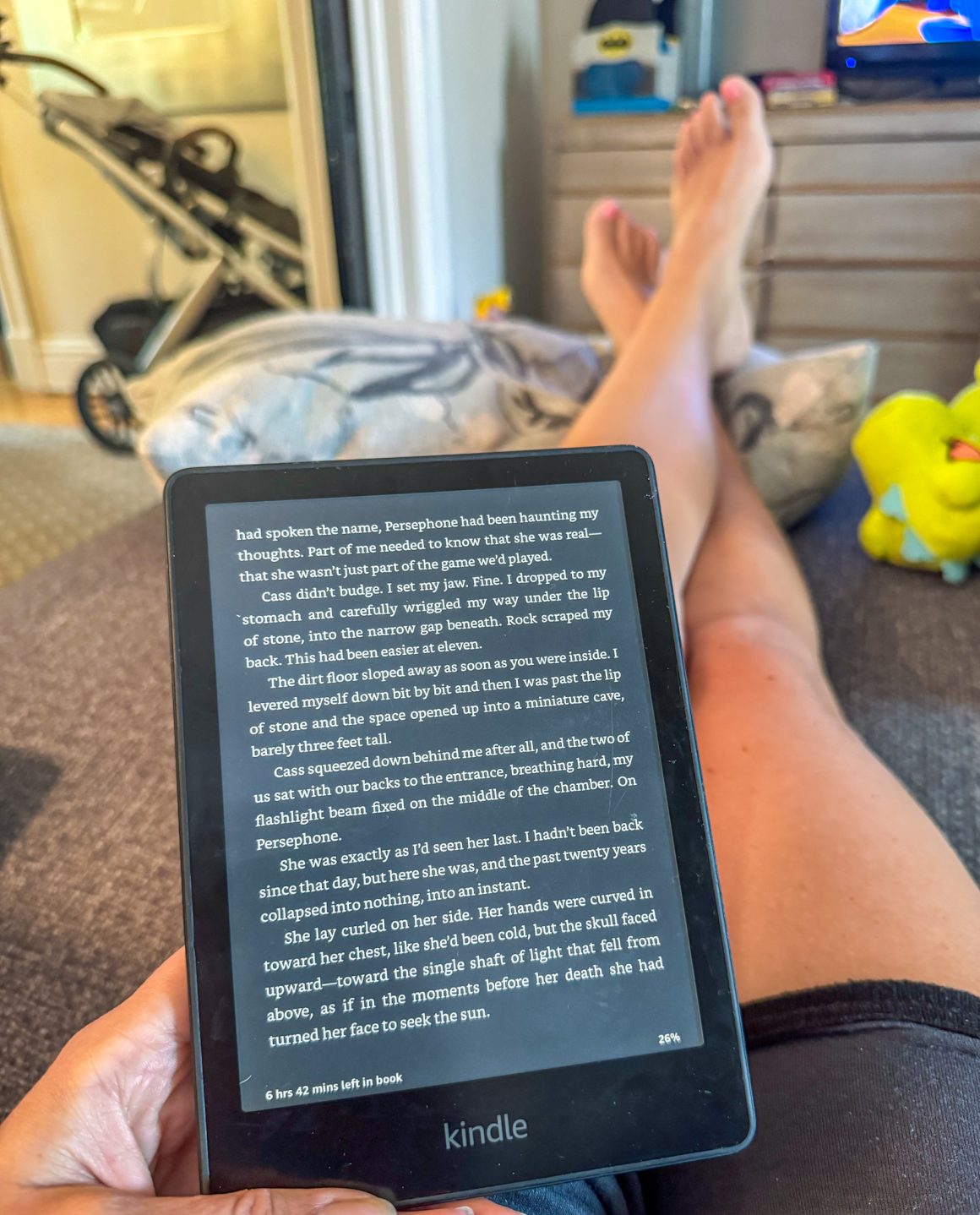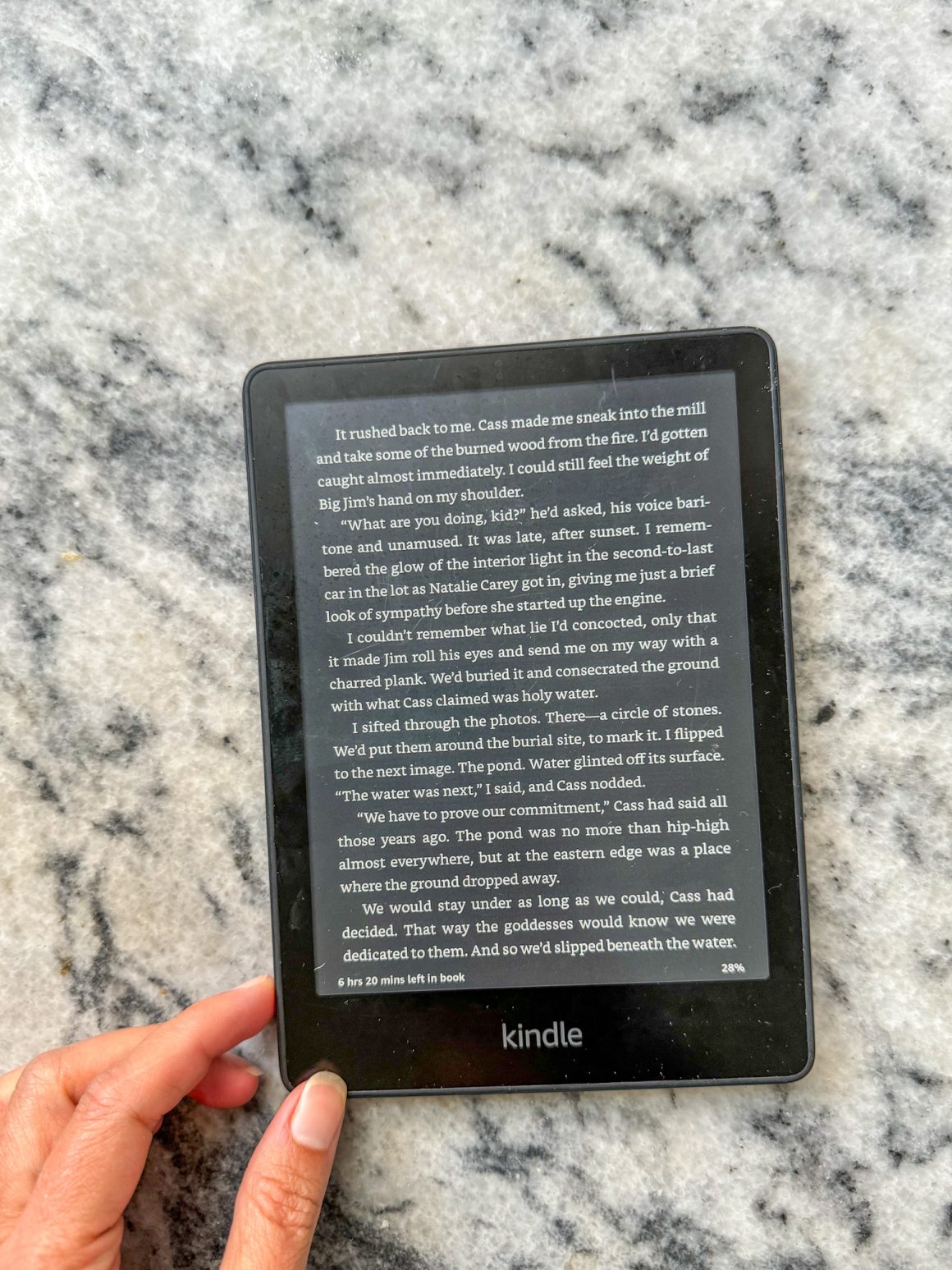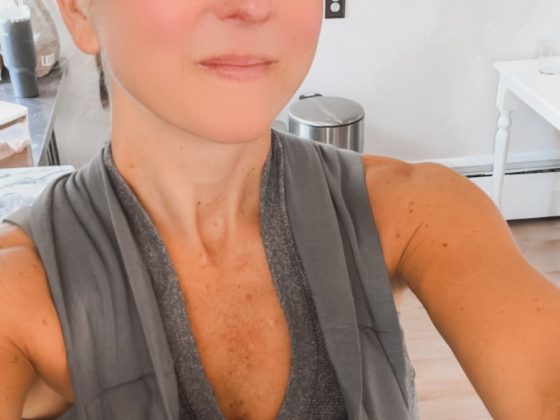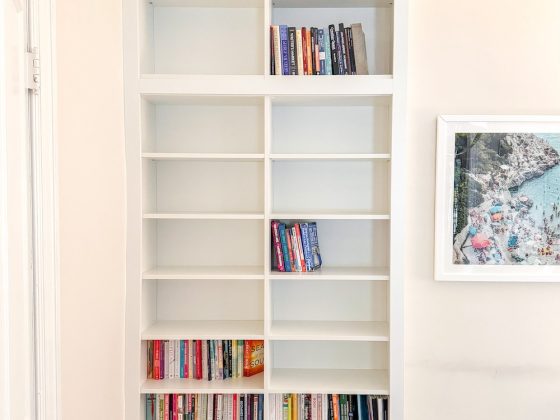For much of my adult life, reading has been an integral part of my self-care. Which is why, when I was pregnant with my first child, it made me nervous when friends told me to kiss the hobby goodbye. I will make time for it, I assured myself. And isn’t there a lot of downtime in the early years? So I got myself a Kindle for easy, efficient access to books, and hoped for the best.
I am here to tell you that if you also love to read, and you are a mom or expecting to be, it can remain a part of your routine. What I did notice however, is during the newborn phase, and even as my son got older, it was often more stimulating to scroll social media amidst the mundanity of motherhood than it was to pick up my book. I wanted to numb out to some extent; to turn off my brain and passively consume content rather than read. But I could tell this tendency was hurting my mental health and sense of self-care. So at the turn of 2024, I made a conscious intention to upgrade my Instagram habit to reading for pleasure instead, especially in the evenings. I increasingly got better at putting down my phone and picking up my Kindle instead (even my toddler knows it is “mama’s book” and not another digital device). For the first time, I challenged myself on Goodreads, aiming to read 35 books for the year (both fiction and non-fiction).
I noticed that when I got off of Instagram for the month of June, I had so much more space to read for pleasure. When I would pick up my phone out of habit, I quickly realized there was nothing for me to look at (after checking my email for the tenth time). While my reading often got interrupted by my toddler, it was still so much more enjoyable than looking at Instagram. One of my motivations for taking a break from the app in the first place was that I always felt worse on the other side of scrolling; with reading however, I feel calmer, refreshed, and relaxed. In the mornings, I am typically reading a nonfiction book – one in the realm of self-help, growth, development, or wellness. I love to learn, and this is a way I keep my mind engaged (see “Improves Cognition” below!). But after a chapter or two, I switch to fiction, whether that is an Elin Hildebrand beach read or a Colleen Hoover domestic thriller. I love getting lost in a good story, and it beats getting lost in an Instagram algorithm any day. It is also very gratifying that we are halfway through the year, and I have almost reached my annual reading goal.

There are so many studies that show the detrimental effects of social media, but what is less talked about are all of the health benefits of reading. Here are five reasons why you might want to incorporate more reading into your daily wellness routine.
Reading reduces stress
Personally, a primary factor behind any self-care ritual is stress reduction. As someone who can struggle with anxiety (especially where motherhood is concerned), having the ability to open a book (or turn on a Kindle) immediately makes me feel more at ease (even with a thriller!). Life can be, well, stressful, so escaping into a story can offer relief. While the concept of escapism through literature can be complex, it is almost as if my uncomfortable emotions are replaced by those emotions evoked when I am reading. Combined with the healthy level of entertainment I feel when transported into a good novel, there is no wonder why reading helps to reduce my stress.
Reading enhances mental health
Along the lines of stress reduction, studies show that reading enhances mental health across a variety of metrics: happiness, optimism, and mindfulness to name a few. For me, reading is both pleasurable and entertaining. There is nothing I love more than cozying up on the couch, lounging in a beach chair, or settling into my airplane seat with a good book. This is a prime example of how reading differs from social media scrolling – looking at Instagram and getting lost in the rabbit hole that is your news feed can be “entertaining,” but it is never the same sense of pleasure that a good book can bring. A captivating story (whether fiction or nonfiction) can also expand your perspective, offer a safe space, and teach you a thing or two – all reasons why educators and health professionals encourage bibliotherapy for mental health both in the classroom and at home for children and adults alike.
Reading improves cognition
Multiple studies have emerged showing the link between reading and reduced dementia risk later in life. I like to think of myself as a student of life, and reading plays a large role in my love of learning. Whereas fiction is something I turn to for pleasure, entertainment, and stress reduction (as outlined above), nonfiction books in the categories of self-help, self-growth, spirituality, development, and other areas of interest continue to teach me every day. After I journal first thing in the morning, I try to spend at least twenty minutes reading a book to keep my brain sharp. If reading is not your thing, fear not – much of the research also pertains to hobbies and other cognitive-stimulating activities, which have the same effect.
Reading fosters empathy
Due to the fact that reading fiction exposes readers to characters’ beliefs, perspectives, thoughts, and feelings, studies have shown the pastime fosters empathy. When reading fiction, there is a feeling of being transported into both a story and the minds of the characters. As a result, research has shown that we walk away with an increased understanding of others that can be translated into real world social situations. One 2013 study concluded that reading fiction improves readers’ “Theory of Mind,” which pertains to an individual’s ability to understand others’ beliefs and desires, despite them being different from their own. This understanding is an important skill in healthy social relationships.
Reading improves sleep quality
Curling up with my book before bed has been a part of my sleep hygiene routine for most of my adult life. It is one of the reasons why I was hesitant to make the switch to a Kindle – I was worried the screen feature would affect my ability to fall asleep (hint: it hasn’t, and I keep my Kindle on dark mode). That being said, it is no surprise that reading before bed can improve the quality of your sleep. In a 2019 research study, participants noted that they felt as if they had gotten a better night’s sleep (in terms of quality and duration) when they read a book in bed before falling asleep compared to those that did not take a book to bed. Additionally, studies show substituting screens and other electronic devices with a book before bedtime positively affects the quality of sleep. So put down your smartphone, turn off the television, and close your laptop – pick up a book instead.
The bottom line
There are so many benefits to reading, whether you choose fiction or nonfiction. Nonfiction can be a good choice if you love learning, are looking to keep your mind sharp, or improve your mental health. Fiction, and that feeling of getting lost in a good story, also enhances happiness, helps reduce stress, and can make you a more empathetic person. And because sleep is so important for good health (and we can’t really say the same for social media), do yourself a favor and substitute your digital screen for a book. Your sense of self-care will thank you.










